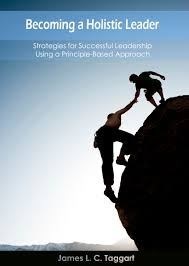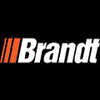Accountability and the Role of Leadership: Are You Sharing the Power?

To begin with, we need to understand just what is meant by the word accountability. Perhaps we need to reposition it in the vocabulary of organizations. In some ways it’s become a pejorative word. When organizations introduce initiatives aimed at empowering employees while ensuring that they are accountable, they’re in effect bureaucratizing the effort to foster initiative.
To engage the hearts and minds of people requires, among other things, the creation of an environment in which they want to take initiative, be creative, and accept the consequences for their actions. This points to the dominating factor in organizations, and it is leadership: how it is espoused and practiced.
To advocate accountability among employees while in the same breath not modelling the necessary behaviours undermines management’s efforts. When employees truly believe that they’re able to share power and decision-making, there will be the beginning of a torrential release of creativity and innovation.
People cannot be empowered; instead, people empower themselves. Creativity and innovation will only happen when people feel safe to experiment and take calculated risks to improve work processes and serve clients and citizens better.

In his book The Oz Principle: Getting Results through Accountability Roger Connors presents a definition of accountability:
“An attitude of continually asking ‘what else can I do to rise above my circumstances and achieve the results I desire?’ It is the process of ‘seeing it, owning it, solving it, and doing it.’ It requires a level of ownership that includes making, keeping, and proactively answering for personal commitments. It is a perspective that embraces both current and future efforts rather than reactive and historical explanation.”
The essence of what he’s saying is that we need a mental shift in how we approach accountability. Trying to solve today’s problems with yesterday’s solutions only leads to further frustration and stress on the part of everyone. Management becomes frustrated with how long it’s taking to change behaviours and to see results. Staff are suspicious of new initiatives, riding them out until new ones come along. Middle management feels torn between the two groups as it tries to respond to the needs of both. The consequence is stressed out middle managers.
To transcend to a new state of co-creation means that the culture of victimization must end. Connors describes this culture as the refusal to take ownership for one’s behaviour and actions. Excuses are the norm, with blame being attributed to wherever it flows the easiest. There’s a creative tension between the rights of employees, which is well established, versus responsibility and accountability, which is less well developed.
Until we collectively achieve a common understanding of the issues surrounding accountability, it’ll be very difficult to realize the creation of strong learning cultures in organizations. Here are six questions that will contribute to the dialogue that’s necessary in organizations. Of particular importance is to approach such a dialogue from an integrated perspective, in which the elements of the learning organization are included.
1. How do we get off the turntable and begin to collectively co-create organizations that are founded, in part, on the principle of personal responsibility and accountability?
2. If we fail to embrace the idea of individual accountability, what is the impact on service to customers and clients?
3. What are the long-term consequences of not paying heed to this and initiating a dialogue and action to make change?
4. What is the role of managerial leadership in this regard. In particular, what are the consequences when managers abandon their staff who take risks but who make mistakes?
5. How do we distance ourselves from a culture of blame and embrace a culture of learning from mistakes?
6. How do we transcend from the level of personal accountability to one of mutual accountability (i.e., among teams)?
As we proceed along the path towards personal and collective enlightenment, we need to continually remind ourselves of the interconnection among the many elements that are affecting the future of our organizations. Accountability is intertwined with the components that form the basis for the creation of learning cultures. Of importance is that we must constantly remind ourselves that accountability is not a thing; rather, it’s about people. And as such, accountability needs to become part of this important conversation.
“Accountability:” It is not only what we do, but also what we do not do, for which we are accountable.
—Molière (French playwright and actor)
__________________________________________________________________________________________________

Articles from Jim Taggart
View blog
The leadership field—and its cousin management—has an over abundance of information, from books, per ...

Many years ago, I watched Eco-Challenge 2000 on the Discovery Channel (a show that ran from 1995 to ...

My recent posts explored what it means to be a team, the five levels of teamwork, how to build perfo ...
Related professionals
You may be interested in these jobs
-

Securities Law Specialist
Found in: beBee Professionals CA - 2 days ago
Direct apply
beBee Professionals Winnipeg, Canada Corporate Law Attorney FreelanceJob Title: Securities Law Specialist · Location: Winnipeg, Manitoba · Company: beBee Professionals · Job Description: · We are looking for a Securities Law Specialist to join our team at beBee Professionals in Winnipeg, Manitoba. The successful candidate will be responsible for p ...
-
Customer Support Advisor
Found in: Talent CA C2 - 2 days ago
Brandt Claresholm, Canada Full timeSales & Marketing · Claresholm, AB · • ID: · • Full-Time/Regular · Our Claresholm, AB branch is looking for an exceptional individual to join our team as a Customer Support Advisor for our Agriculture Division (John Deere). · The Customer Support Advisor is an outside sales ...
-
Pharmacy Assistant II
Found in: beBee S2 CA - 2 weeks ago
Lawtons Summerside, Canada Part timeRequisition ID: 182000 · Career Group: Pharmacy Careers · Job Category: Retail - Pharmacy · Travel Requirements: 0 - 10% · Job Type: Part-Time · Country: Canada (CA) · Province: Prince Edward Island · City: Summerside · Location: 880 Summerside Lawtons Pharm · Postal Code: C1N 4 ...



Comments
Zacharias 🐝 Voulgaris
6 years ago #10
Jim Taggart
6 years ago #9
Yes to the turntable effect. It's akin to saying, that's how things are done around here. Speaks volumes to corporate culture.
Jim Taggart
6 years ago #8
I hear what you're saying about using the word "ownership" instead of accountability, especially in a small business setting. Indeed, if employees have a financial stake in the business, then it's even more appropriate to use ownership.
Harvey Lloyd
6 years ago #7
Thanks. Really enjoyed.
Harvey Lloyd
6 years ago #6
Randall Burns
6 years ago #5
Randall Burns
6 years ago #4
Randall Burns
6 years ago #3
Jim Taggart
6 years ago #2
Thanks for taking the time to share your thoughts, Charlene. Yes, remaining positive is more constructive than turning pessimistic. One day coffee perhaps.
Randall Burns
6 years ago #1